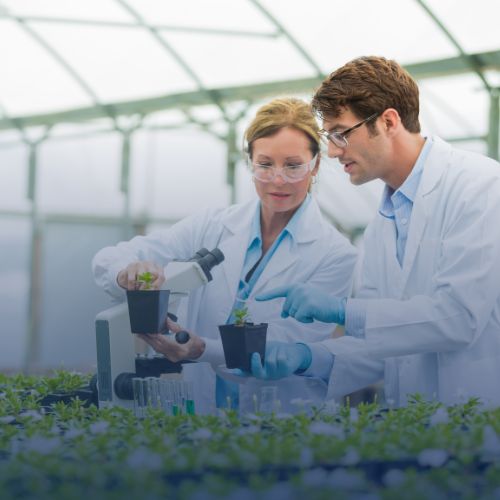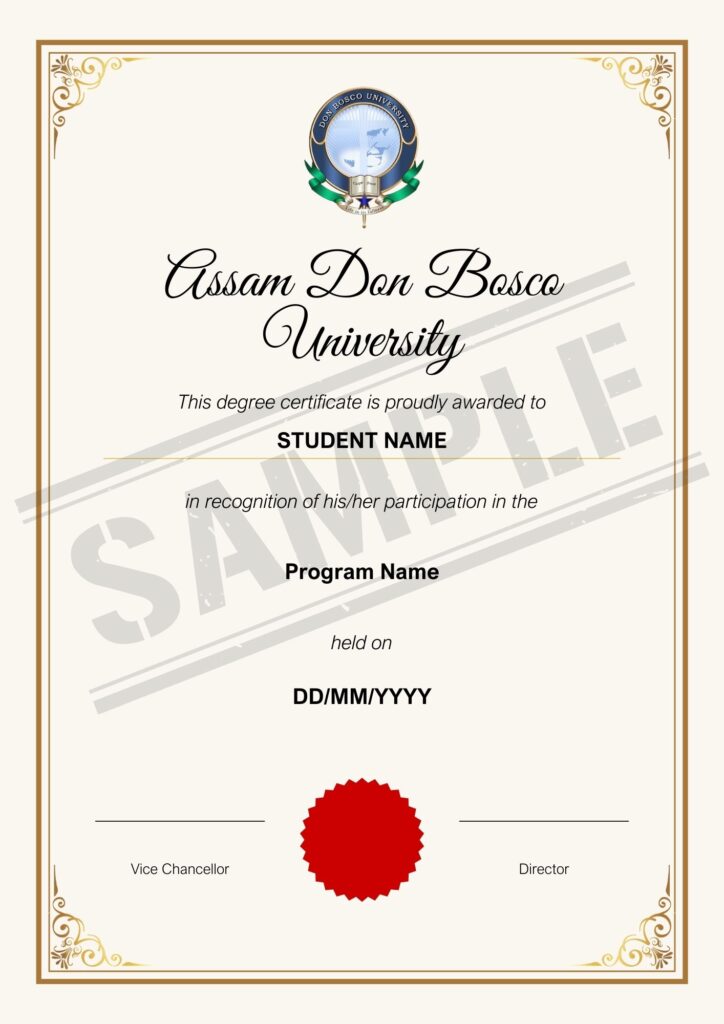Test Program
MSc in Botany
Duration: 02 Years
No of Seats: 40
MSc in Botany
Masters in Botany at Don Bosco University offers unique opportunities for research and specializations in the cutting-edge Botanical technologies. The University’s campus is rich with flora and fauna which makes it a perfect place to immerse in Botanical studies – to explore various plants right from single celled algae to the giant banyan trees, toxic mushrooms to medicinal plants and further develop scientific curiosity and knowledge.
Intensive laboratory exercises and exposure to field study and hands on experience in tissue culture, biofertilizer technology, plant pathology and protection will prepare a Master Degree student in Botany at Don Bosco University to work in various government departments and private companies including environment and wildlife conservation, agriculture, horticulture, ecotourism, forestry, food technology, biotechnological firms and pharmaceutical companies.

Program Highlights and Advantages
Discover our Degree Programs and begin an exciting educational journey

Emerging specializations
New-age specializations shaping tomorrow's business landscape

Robust Learning Model
550+ hours of video lectures to help you maximize your learning

Personalized Learning
Personalized learning through unique option of choice based credit system

Real World Projects
Real world projects & case studies to help you succeed in your domain
Program Overview & Structure
| Phycology |
| Mycology |
| Bryophytes, Pteridophytes and Gymnosperms |
| Angiosperms |
| Lab |
| Lab |
| Plant Ecology |
| Microbiology |
| Cytogenetics and Plant Breeding |
| Plant Physiology |
| Lab |
| Lab |
| Plant Biochemistry and Biotechnology |
| Cell and Molecular Biology |
| Environmental Management, Research Methodology and Biostatistics |
| Biochemical, Molecular Techniques, and Bioinformatics |
| Lab |
| Lab |
| Dissertation Phase I |
| Microbial Genetics and Applied Microbiology |
| Plant Cell and Tissue Culture |
| Plant Pathology and Plant Protection |
| Biofertilizer Technology |
| Herbal Medicine |
| Biodiversity and its Conservation |
| Lab |
| Field Study |
| Dissertation Phase II |
Degree offered by us

Eligibility
Grade /Marks requirement from qualifying examinations
Graduation in any area of Life Sciences with 60% in the aggregate and Chemistry as a subject. Those who have a background in Biochemistry at Bachelor’s Degree will have an advantage.
Provisional Admission
Applicants who have not yet obtained their Bachelor’s Degree also may apply for admission. Such candidates would be offered provisional admission until they furnish evidence of fulfilling the eligibility criterion stated in (1) above within 3 months of the commencement of the programme.
Career Impact
How We Help You Build Your Dream Career
Industry Mentors
Personalized guidance from career experts throughout the academic journey.
Placement Drives
Connect with employers & explore opportunities through interactive online events.
Master Classes
Access comprehensive help for resume building, interview preparation and job placement.
Profile Building
Build a credible professional profile by showcasing your skills through hands-on projects.
F.A.Q.
The university offers a range of undergraduate, graduate, and doctoral programs across disciplines including engineering, science, arts, business, and health sciences. Each program has its own specific requirements and areas of focus.
You can apply online through our university’s admissions portal. Complete the application form, submit the required documents (such as transcripts, test scores, and recommendation letters), and pay the application fee. Detailed instructions are available on our admissions webpage.
Admission requirements vary by program. Typically, undergraduate programs require a high school diploma and specific academic credentials, while graduate programs may require a bachelor’s degree in a related field, relevant test scores, and work experience. Be sure to review the specific requirements for the program to which you are applying.
Yes, the university offers a variety of scholarships and financial aid programs based on academic merit, financial need, and other criteria. Information about available scholarships and how to apply is available on the university’s financial aid webpage.
Application deadlines vary depending on the program and the intake period (e.g., fall, spring). Be sure to check the program’s admissions page for specific deadlines.
